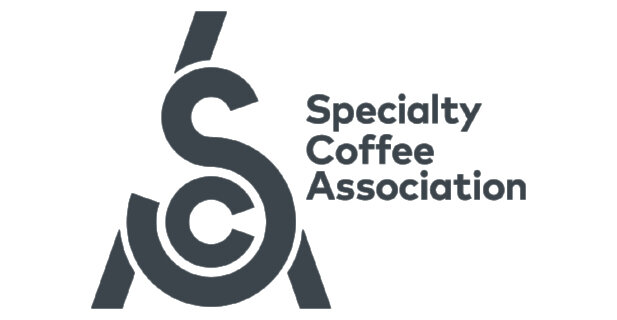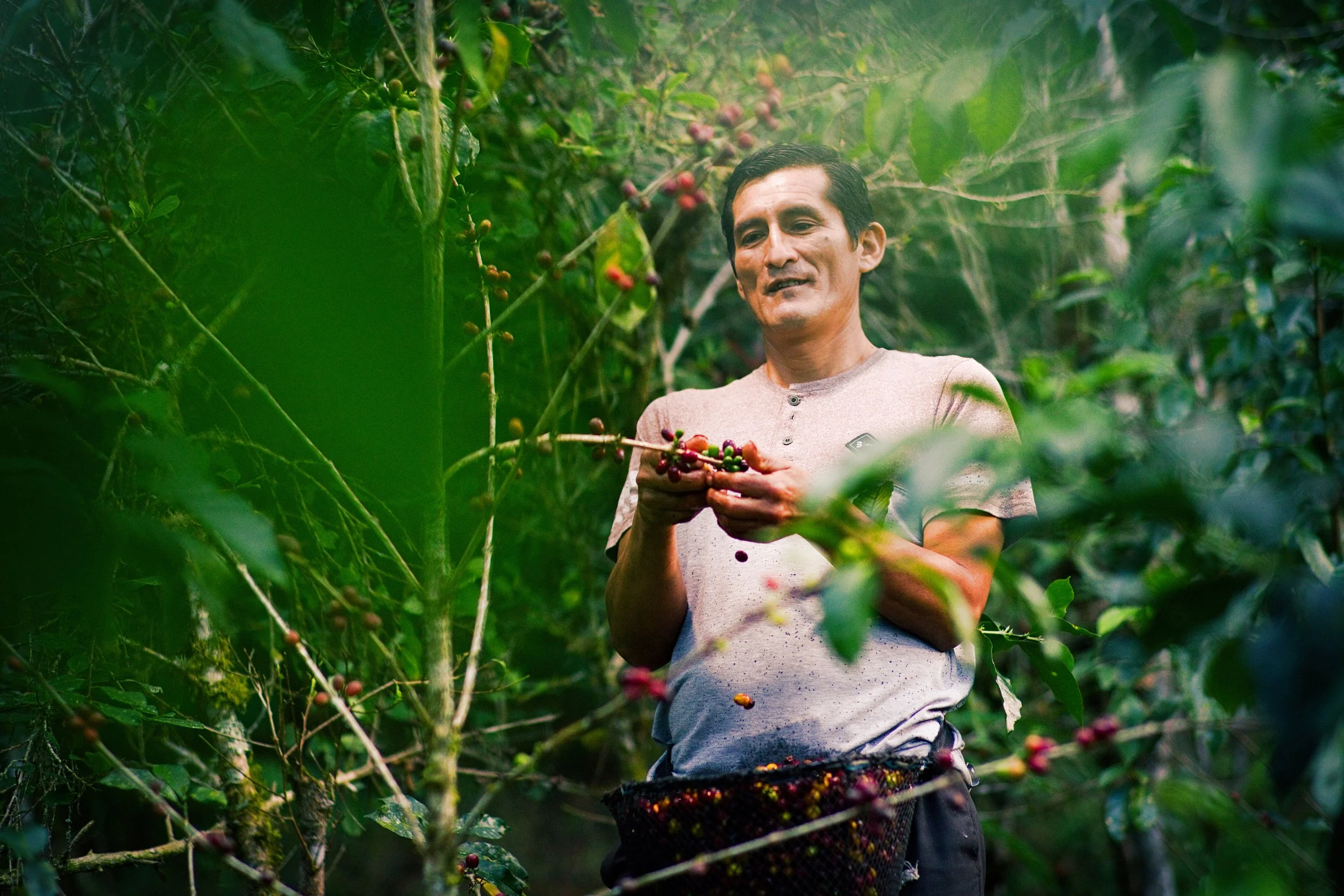A Brief History of Peru’s Specialty Coffee Production and Consumption
Coffee producer from Chanchamayo, Junin, Peru. Credit: Heinz Plenge Pardo/PROMPERÚ
Article Written by Coffees from Peru
The Origin
The first reference to coffee cultivation in Peru dates back to the middle of the 18th century. The district of Chinchao, located in the Huanuco region, would have been the territory chosen to start growing coffee. In the 19th century, this crop reached the Junín region, specifically, the province of Chanchamayo, the coffee-growing area par excellence.
Over the years, the plantations have spread from north to south between the mountains of the Andes and the Amazon basin. Today, Peruvian coffee is produced on 233,000 hectares in up to 15 regions, the main production areas being Junin, Amazonas, Cajamarca, and San Martin regions.
In this way, coffee has become one of Peru's traditional agricultural export products and its main markets are the United States, Germany, Belgium, Canada, and Sweden. In 2023 alone, coffee exports totaled US$829M. Having gained space in important international markets, Peru aimed itself at a new challenge: specialty coffees.
Credit: Daniel Silva Yoshisato/ PROMPERÚ
Specialty Coffees
If coffee is one of our flagship products, specialty coffees are at the pinnacle of our national pride. In general, specialty coffees in Peru are of the arabica species and, for the most part, are grown at altitudes of more than 1,000 meters above sea level (masl) in jungle areas. The variety of microclimates, soils, and altitudes that the Peruvian territory possesses allows each specialty coffee to have its own character, aroma, and flavor depending on the region where it was grown. For example, 850 aroma elements have been identified in the Peruvian coffee. The identification of these components allows us to recognize its profile, the characteristics such as cup quality, body, acidity, and balanced flavor.
Peru started the specialty coffee business more than three decades ago. Currently, around 6,000 families are dedicated to its production. The effort and dedication of these small producers paid off quickly, improving their quality of life.
By 2004, Peru had one of the best specialty coffees in the world. Dagoberto Marin Ludeña, a coffee grower from the district of Villa Rica in the Pasco region, received the Gold Medal at the 31st International World Coffee Competition, in which 33 varieties of coffee from four continents participated.
Cup of Excellence and Other Awards
Since then, the prestige of Peru's specialty coffee has continued to grow. In 2017, the Cup of Excellence competition was held for the first time in Peru. Juan Heredia Sanchez, a coffee grower from Cajamarca, was the winner of this edition, obtaining 92.25 points in cup for his Caturra Bourbon variety coffee.
Also, five other small national producers have obtained the Cup of Excellence: Dwight Aguilar (2018 and 2021) from Cusco; Grimanes Morales (2019) from Cajamarca; Hilda Leguia (2020) from Cusco; Blanca Cordova (2022) from Cajamarca; and Yoniser Mego who won the 2023 edition with a Geisha variety coffee, grown at 1,990 masl on the Alto Mirador farm, located in Jaen in the Cajamarca region.
Vicentina Phocco Paleroen was also recognized as a specialty coffee grower in the competition organized by the Small Producers' Association (SPP) during the 2018 Specialty Coffee EXPO in Seattle, USA. Vicentina's coffee was made up of Catimor, Tipica, Pache, and Bourbon varieties, scoring 88.5 points in the cup.
Credit: Karina Mendoza / PROMPERÚ
A Booming Specialty Coffee Scene
Along with the recognition of specialty coffee producers, the number of people—mostly young people—who decided to specialize in the preparation of coffee-based beverages have been increasing, as baristas. In 2009, this growing group came together to form the Association of Peruvian Baristas (Artebar) and, in the following year, offered its first training courses at national fairs and exhibitions.
Since 2016, Peru has been experiencing a boom in specialty coffee shops nationwide, which has led to a high demand for baristas and their role is becoming increasingly important. The Peruvian public now recognizes and values the specialization required to express the best attributes of coffee in a cup.
The barista is the last link in the coffee production chain: they actively seek to give the customer an idea of the process and the journey the coffee has undergone, from the cherry tree to the cup. According to Karen Pisconte, the first Peruvian Barista Champion to compete in the World Coffee Championships, a barista is “a specialist who turns a cup of coffee into a delight for the consumer's palate.”
Baristas pursue the complexity and characteristics of the preparation. For this reason, consumers are happier when they receive a cup of coffee with added value, even more so when that coffee comes from the regions of Peru.
Peru, Origin of Specialty Coffee
Discovering the richness of Peru through a cup of coffee is possible. All you have to do is choose our specialty coffee and start living the experience. We encourage you to feel how the particularity of the aromas and flavors change according to the origin of the beans and show you the diversity of soils, climates, and altitudes that make each specialty coffee a unique delight.
With this cup of coffee, you can enjoy its high quality and verify that it is due to the daily work of thousands of producing families who strive to obtain the best beans, putting into practice knowledge that has been passed down for centuries.
Yes, the richness of Peru can be found in a cup of coffee and you can discover it!
Shaping an Industry
The Commission for the Promotion of Peru for Exports and Tourism (PROMPERÚ) works in line with the Peruvian coffee guilds, to boost the coffee industry and promote the recognition of the attributes of Peruvian coffee in the international markets.
In 2018, the exclusive brand “Coffees from Peru” was launched, whose objective is the promotion of conventional and specialty Peruvian coffees. This brand is inspired by a footprint that represents its own identity as well as acting as a symbol of the origin of Peruvian coffee. The same year, Peru launched the National Action Plan for Peruvian Coffee. The action plan aims to position Peru as a producer, exporter, and consumer of sustainable quality coffee by 2030. Through the plan, Peru’s coffee industry will adapt to climate change and be recognized worldwide for its innovation, competitiveness, and solid institutional frameworks—these will directly benefit coffee-growing families and all actors in the Peruvian coffee ecosystem.




